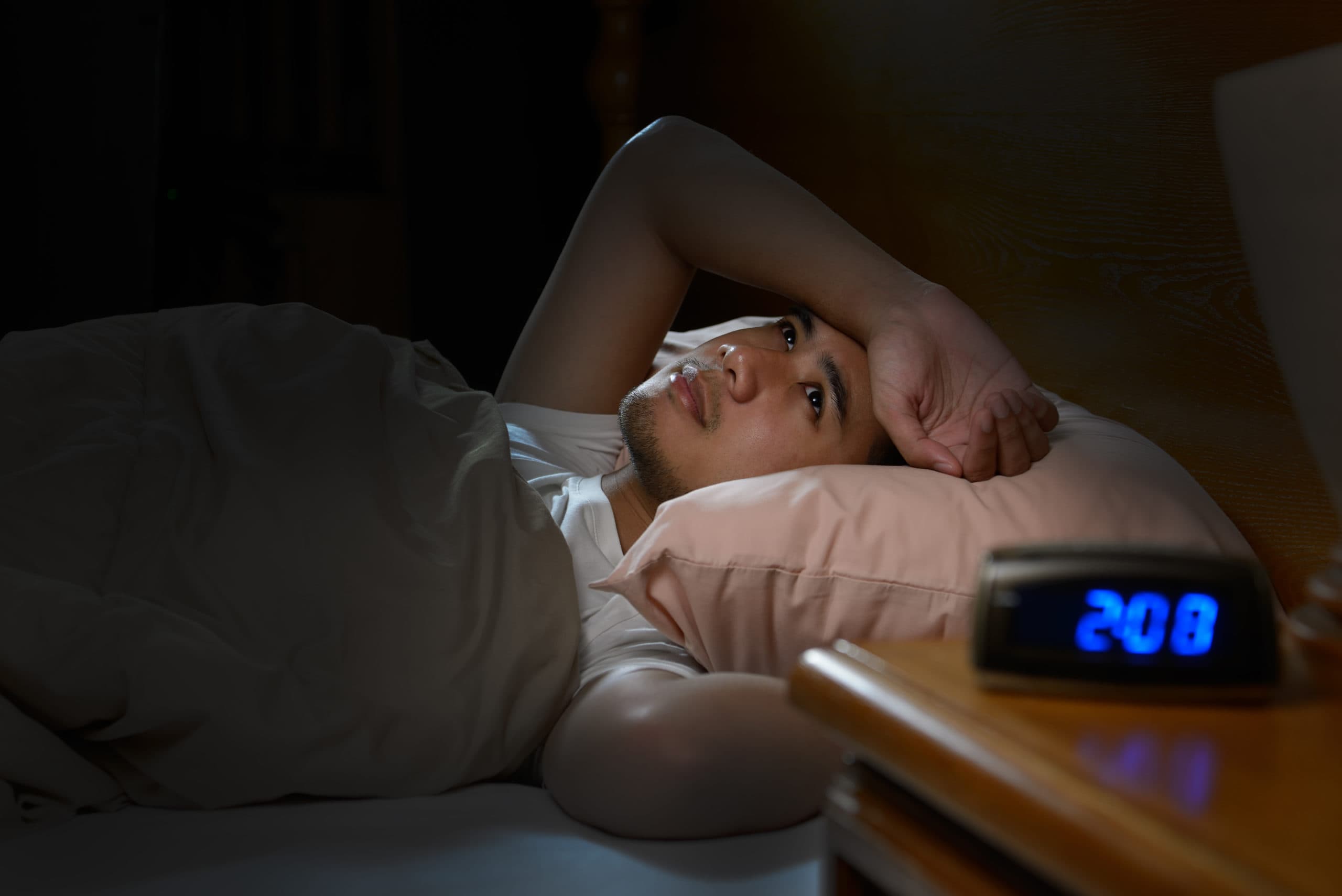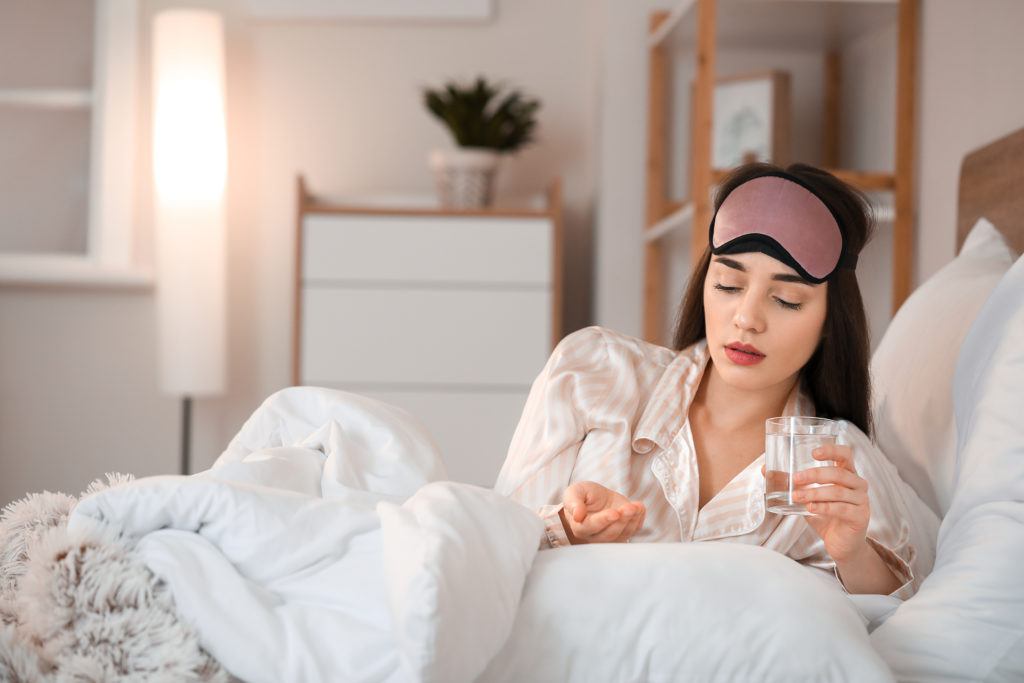Can’t sleep? You’re not alone. Between 50 and 70 million adults in the United States are affected by a sleep disorder, according to the American Sleep Association. Lying awake in bed or waking up feeling like you didn’t sleep well can be incredibly frustrating and leave you feeling exhausted during the day. You’re likely wondering what to do when you can’t sleep or have poor sleep quality. Before you spend another restless night counting sheep, check out these tips for getting better sleep.
What To Do When You Can’t Sleep
If you’re stuck lying in bed awake and simply cannot fall asleep, try to stay as calm and relaxed as you can. Getting frustrated won’t help you fall asleep faster. As tempting as it may be, avoid grabbing your phone to scroll social media or check emails. The bright blue light will make you feel more awake. Some helpful things to try are:
- Meditating while in bed
- Progressive muscle relaxation
- Imagining yourself in a peaceful, quiet setting
- Deep breathing
If you still have trouble falling asleep after 20-30 minutes, try going to another part of your house to do something relaxing like reading a book or listening to quiet music. Being awake in bed for a long period of time is bound to cause frustration and can lead to a negative association with your sleeping environment.
A Better Night’s Sleep Starts Before You’re In Bed
There are plenty of things that can interfere with your sleep that start before you climb into your bed at night.
Create A Sleep Schedule (And Stick To It)
Plan to get seven to eight hours of sleep every night. Decide when you will go to bed and when you will wake up. Doing your best to stick to this schedule on the weekdays and weekends, with no more than about an hour difference, will help reinforce your body’s sleep-wake cycle. Start winding down for bed at least 30 minutes before your scheduled bedtime by putting away your phone and turning off the TV to read a book, stretch, or do something relaxing. It may be challenging at first if you are used to staying up later, but over time your body will thank you.
Limit Napping During the Day
Taking long naps during the day might feel necessary when you aren’t getting enough sleep, but try to limit them to no more than 20 minutes and avoid napping after about 3 pm. Napping for too long can leave you feeling groggy afterward. If you can avoid napping while you are working on your new sleep schedule, your body may have an easier time recognizing your new sleep-wake cycle.
Move Your Body
Many people find that engaging in regular physical activity during your waking hours can help promote better sleep and reduce the time it takes to fall asleep at night. It can also help lessen daytime sleepiness because your body will be energized from the physical activity.
Be Mindful of What You Consume Before Bed
Consuming caffeine or nicotine before bed can affect how well you sleep. Both stimulants can take hours to wear off and make it more difficult to fall asleep. Alcohol cannot be left out of this conversation either. While having a drink before bed might make some people feel sleepy, researchers have found that alcohol consistently affects the proportions of the various sleep stages and “the amount of REM sleep time is lower during the first half of the night relative to the second half of the night” when alcohol is consumed 30-60 minutes before bed. Going to bed after a heavy meal could also keep you awake from feeling uncomfortable. The same can be said for going to bed hungry.
Consider Natural Sleep Support Supplements
When sleep doesn’t come easily and you’re wondering what to do when you can’t sleep, reaching for a bottle of sleeping pills might seem like an easy answer. Fortunately, there are natural alternatives to sleeping pills that can truly help when you’re not sure what to do when you can’t sleep. One of the most well-known natural sleep aids is melatonin. Melatonin is a naturally occurring hormone released at night, but sometimes our bodies need a little boost. Ingredients like GABA, L-Tryptophan, and L-Theanine can also help you catch some much-needed Z’s without being addictive or leaving you feeling groggy in the morning.
Sleep Support Supplements from BioClinical Science
BioClinical Science has three natural sleep support supplements to choose from to fit your needs:
- Sleep Support No Melatonin: contains GABA, Tryptophan, Vitamin B6, and L-Theanine
- Sleep Support Extra Strength: contains GABA, Melatonin, and L-Tryptophan
- Sleep Support Max: contains GABA, Melatonin, L-Tryptophan, and Vitamin B6
Visit the website to learn more and pick up a bottle today!
*These statements have not been evaluated by the Food and Drug Administration.


